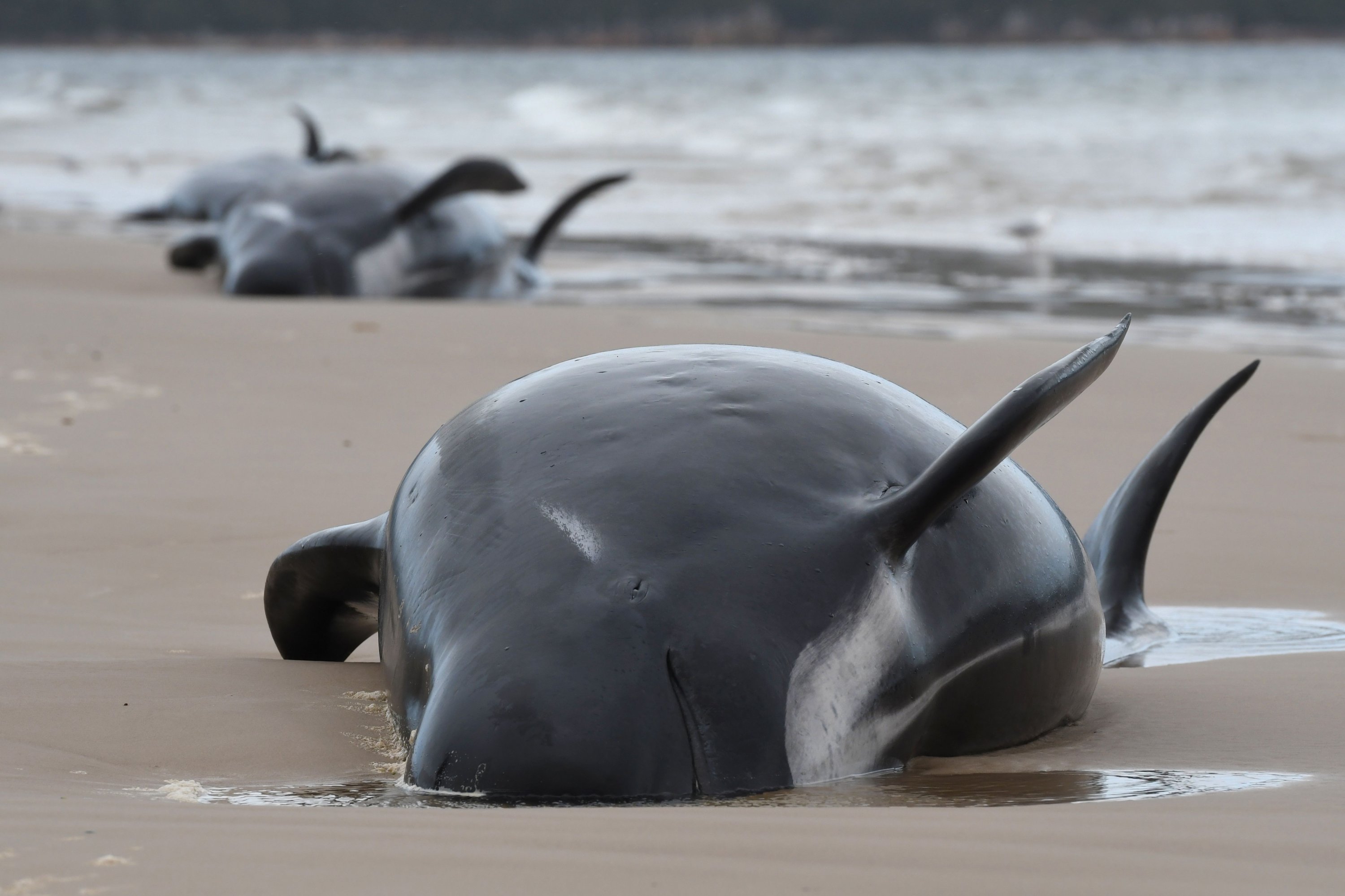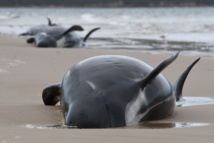"We'll continue to work to free as many of the animals as we can," Deka said. "We'll continue working for as long as there are live animals."
On Monday, around 270 whales became stranded across three locations at Macquarie Heads.
Another 200 more were found dead around 7-10 kilometres south of the original site on Wednesday morning.
"This is definitely the biggest [mass stranding] in Tasmania and we believe it is the biggest in Australia, in terms of numbers stranded and died," Marine Conservation Program biologist Kris Carlyon said.
The cause may have been down to "simple misadventure," or feeding along the coast, according to the expert.
After testing various methods, around 60 rescuers landed on a successful technique to refloat and relocate the whales using slings attached to boats.
Pilot whales are a very social species with strong group behaviour, leading to concerns that whales could try to return to the herd despite having been rescued.
Carlyon has described the situation as "confronting," saying that rescuers can hear the whales calling out to each other in distress.
"In terms of preparing for and stopping these events in the future ... it's pretty impossible to do. There's nothing to indicate that this was due to human cause, this is a natural event," he said.
"We know strandings have occurred throughout history prior to humans. This was something that happened from the fossil record right through to the current day."
Authorities expect to rescue more whales later Wednesday and will also meet to discuss how to dispose of the carcasses.
On Monday, around 270 whales became stranded across three locations at Macquarie Heads.
Another 200 more were found dead around 7-10 kilometres south of the original site on Wednesday morning.
"This is definitely the biggest [mass stranding] in Tasmania and we believe it is the biggest in Australia, in terms of numbers stranded and died," Marine Conservation Program biologist Kris Carlyon said.
The cause may have been down to "simple misadventure," or feeding along the coast, according to the expert.
After testing various methods, around 60 rescuers landed on a successful technique to refloat and relocate the whales using slings attached to boats.
Pilot whales are a very social species with strong group behaviour, leading to concerns that whales could try to return to the herd despite having been rescued.
Carlyon has described the situation as "confronting," saying that rescuers can hear the whales calling out to each other in distress.
"In terms of preparing for and stopping these events in the future ... it's pretty impossible to do. There's nothing to indicate that this was due to human cause, this is a natural event," he said.
"We know strandings have occurred throughout history prior to humans. This was something that happened from the fossil record right through to the current day."
Authorities expect to rescue more whales later Wednesday and will also meet to discuss how to dispose of the carcasses.









 Home
Home Politics
Politics











